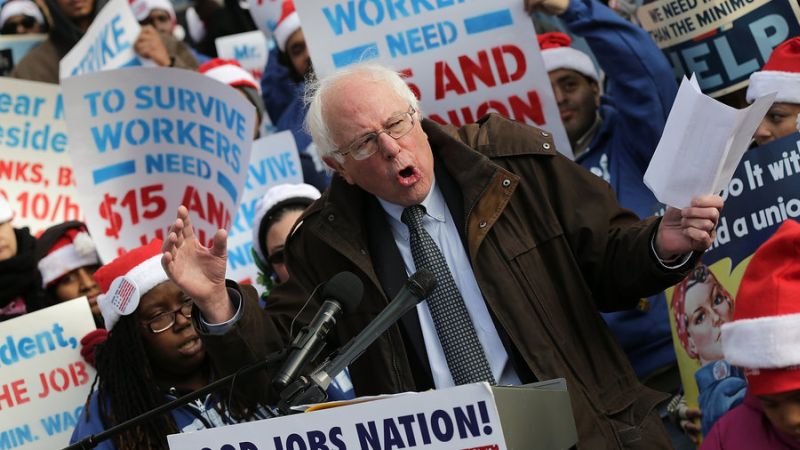Filed under: Capitalism, Critique, Labor, The State, US

A new wage bill by Bernie Sanders, which proposes to raise minimum wage to $15 by 2024, raises important questions on movements and the Democratic Party.
By Duane Wright
When leftists like myself tell progressives that the role of the Democratic party is to demobilize social movements and get people accepting less than what they are fighting for, a common response is “No, that’s not me. I will stay true to what I’m fighting for and I’m using the Democratic Party, not the other way around!”
But then campaign season comes around and they are doing GOTV work knocking on doors for Democrats, making phone calls, sharing their Facebook posts, maybe even running for a position in the party. Meanwhile, the most leftwing Democrat, Bernie Sanders, backs a bill to raise the federal minimum wage to $15 by 2024 and these same progressives cheer him on.
But $15 in 2024 isn’t the same thing the movement was fighting for in the beginning – efforts demanding $15 took off in 2014 and that would be closer to $18 in 2024 when you adjust for inflation.
When you think about it, $3 less per hour for 40 hours per week for 52 weeks is $6,240 they just stole from the lowest paid workers. Plus, all these years of not having that raise adds up to TENS OF THOUSANDS.
Wasn’t a key part of the $15 minimum wage that it was based on cost of living and what a living wage would be? So how are demanding “we need a living wage!” but then expected to applaud a proposal that leaves workers a decade behind?
But tell me again how progressives and mainstream unions are using the Democratic Party and they’re not using you.
Duane Wright is completing a Sociology PhD at UC Davis and is a former officer in his grad student union, UAW Local 2865.





